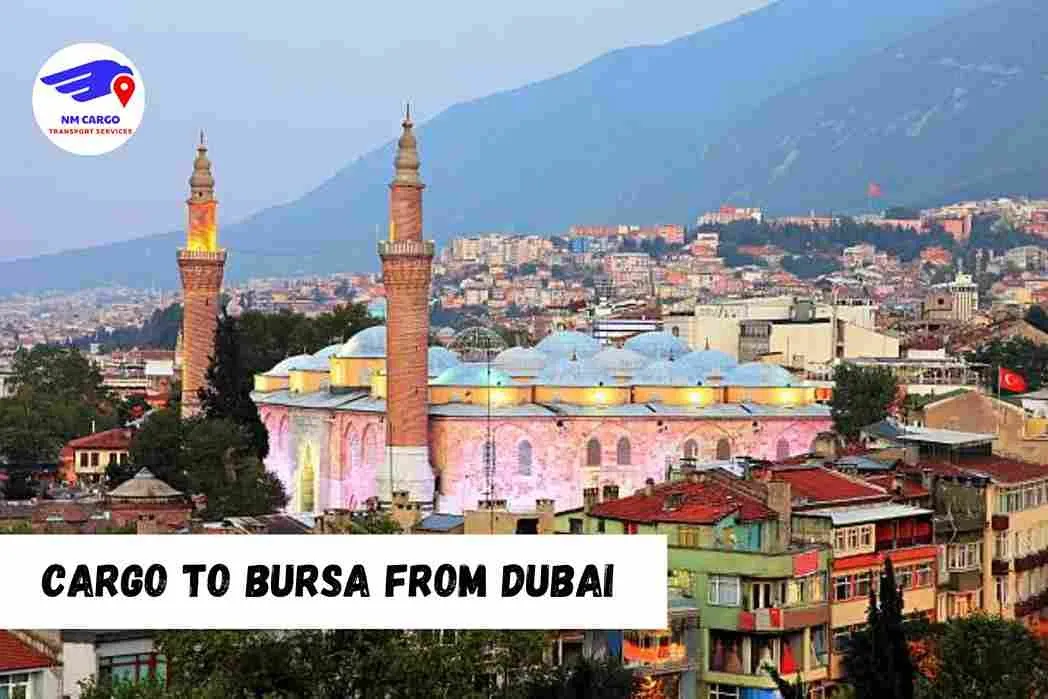Navigating international logistics requires a strategic approach, particularly when managing cargo shipments from Dubai to Bursa, Turkey. As an important gateway in the UAE, Dubai offers a wealth of opportunities for businesses looking to streamline their cargo operations. Bursa, on the other hand, is a key industrial hub in Turkey, known for its thriving manufacturing and trade sectors. This guide provides a detailed overview of the logistics involved in transporting cargo from Dubai to Bursa, covering essential aspects like shipping methods, documentation, and cost considerations.
Understanding the Route: Dubai to Bursa
Geographical and Economic Overview
Dubai, located on the southeastern coast of the Persian Gulf, is renowned for its advanced infrastructure and bustling port facilities. Bursa, situated in northwestern Turkey, is strategically positioned near major trade routes and industrial centers. The city’s proximity to Istanbul and its access to both land and sea transport networks make it a vital destination for international cargo.
Key Transport Routes
- Air Freight: Dubai International Airport (DXB) is a major global aviation hub. Air freight is the fastest method for transporting cargo, ideal for high-value or time-sensitive shipments. Although Bursa does not have a major international airport, cargo can be flown into Istanbul Airport (IST) and then transported by road.
- Sea Freight: Sea freight from Dubai involves shipping cargo via major ports like Jebel Ali Port. The cargo can be transported to Turkish ports such as Istanbul or Izmit and then delivered to Bursa via road.
- Road Freight: Direct road transportation from Dubai to Bursa is not feasible due to geographical barriers, but goods can be transported from a nearby port in Turkey.
Shipping Methods and Considerations
Air Freight
Advantages
- Speed: The quickest way to deliver goods.
- Reduced Risk of Damage: Less handling compared to sea freight.

Disadvantages
- Cost: Higher expenses compared to sea freight.
- Capacity Limitations: Restrictions on the size and weight of cargo.
Process
- Booking: Schedule cargo space with an air freight carrier.
- Customs Clearance: Ensure all customs paperwork is in order.
- Transport: Flight to Istanbul, followed by road transport to Bursa.
- Delivery: Final delivery to the destination in Bursa.
Sea Freight
Advantages
- Cost-Effective: Generally cheaper for large shipments.
- Capacity: Suitable for large volumes and heavy goods.
Disadvantages
- Transit Time: Slower compared to air freight.
- Handling: Increased risk of damage due to multiple handling stages.
Process
- Booking: Reserve container space with a shipping line.
- Preparation: Pack and label cargo appropriately.
- Shipping: Transport goods by sea to a Turkish port.
- Land Transport: Move cargo from port to Bursa.
Shipping cargo from Dubai to Bursa involves a range of logistics considerations, from choosing the right transport method to managing documentation and costs. Whether opting for air or sea freight, ensuring efficient handling and compliance with regulations is essential for a smooth delivery process. By understanding the routes, shipping methods, and cost factors involved, businesses can effectively manage their cargo shipments and optimize their supply chain operations.








